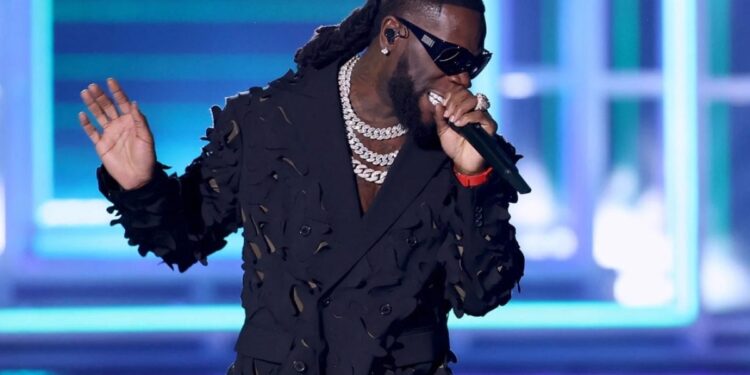Nigerian singer and songwriter, Damini Ogulu, popularly known as Burnaboy, has said that Nigerian artists earn significantly less for streams from their local audience compared to those from U.S. and U.K. listeners, with payouts up to 90% lower.
The 33-year-old musician shared his thoughts via Instagram, revealing that Nigerian artists typically earn just $400 for 1 million local streams, compared to the $3,000 to $4,000 that artists from the UK and US receive for the same number of streams.
Burna Boy, known for hits like Ye and Anybody, explained the pay disparity between different regions, saying, “1 million Nigerian streams: $300-$400. 1 million UK streams: $3,000-$4,000. 1 million US streams: $3,000-$4,000. 1 million euro streams: $3,000-$4,000.”
His comments highlight a significant income gap between African musicians and their international counterparts, driven by various factors including the market size, revenue-sharing models, and currency exchange rates.
One of the primary reasons for this disparity is the revenue-sharing model used by music streaming platforms such as Spotify, Apple Music, and TIDAL. These platforms operate on a system where artists earn a percentage of the revenue generated from ads, subscriptions, and other services.
In larger markets like the U.S. and the U.K., where subscription fees are higher, there is more ad revenue and a larger paying user base, which results in higher payouts for artists in these regions.
Some context
The subscription models in these regions further amplify the earnings gap. In the US, Apple Music charges $10.99 per month for an individual subscription, $5.99 for students, and $16.99 for family plans. Similarly, YouTube Music Premium in the US costs $11.99 per month or $119.99 annually.
- In contrast, Nigerian users pay significantly lower fees. Spotify Premium costs just N1,300 (about $0.82) per month in Nigeria, and YouTube Music Premium is part of a YouTube Premium subscription, priced at N1,300($0.82) for individuals and N2,000($1.27) for family plans.
- The Nigerian market is relatively smaller, with fewer paying subscribers and less ad revenue, which directly impacts the amount local artists receive per stream in the country. Additionally, the value of local currencies plays a role in the disparity. The Nigerian Naira is significantly weaker than the US Dollar or British Pound.
- Also, the exchange rate opened 2023 at N461.5/$1, closed the year at N907.11/$1, and ended 2024 at N1,535/$1. While the payment per stream for Nigerian artists remains comparatively low, the growth of Nigerian music on global platforms has been substantial.
According to Spotify’s 2024 Loud & Clear report, Nigerian artists earned more than N58 billion in royalties from the platform alone in 2024, a figure that more than doubled from the previous year and was five times greater than the amount earned in 2022. This marks a major milestone for Nigerian music, reflecting the growing influence of Afrobeats and other local genres on the international stage.
What to know
However, despite these significant earnings, the financial gap between Nigerian artists and their international peers remains substantial. As Burna Boy pointed out, having the number one song on a Nigerian streaming platform is not necessarily something to celebrate, as the financial rewards from local streams pale in comparison to those earned in the UK, US, and European markets.
Instead, he encourages Nigerian artists to look beyond their local scene and explore opportunities in international markets, where higher payouts can provide better financial sustainability.
Despite these challenges, Nigerian artists continue to gain global recognition, and platforms like Spotify have helped amplify their music worldwide.















